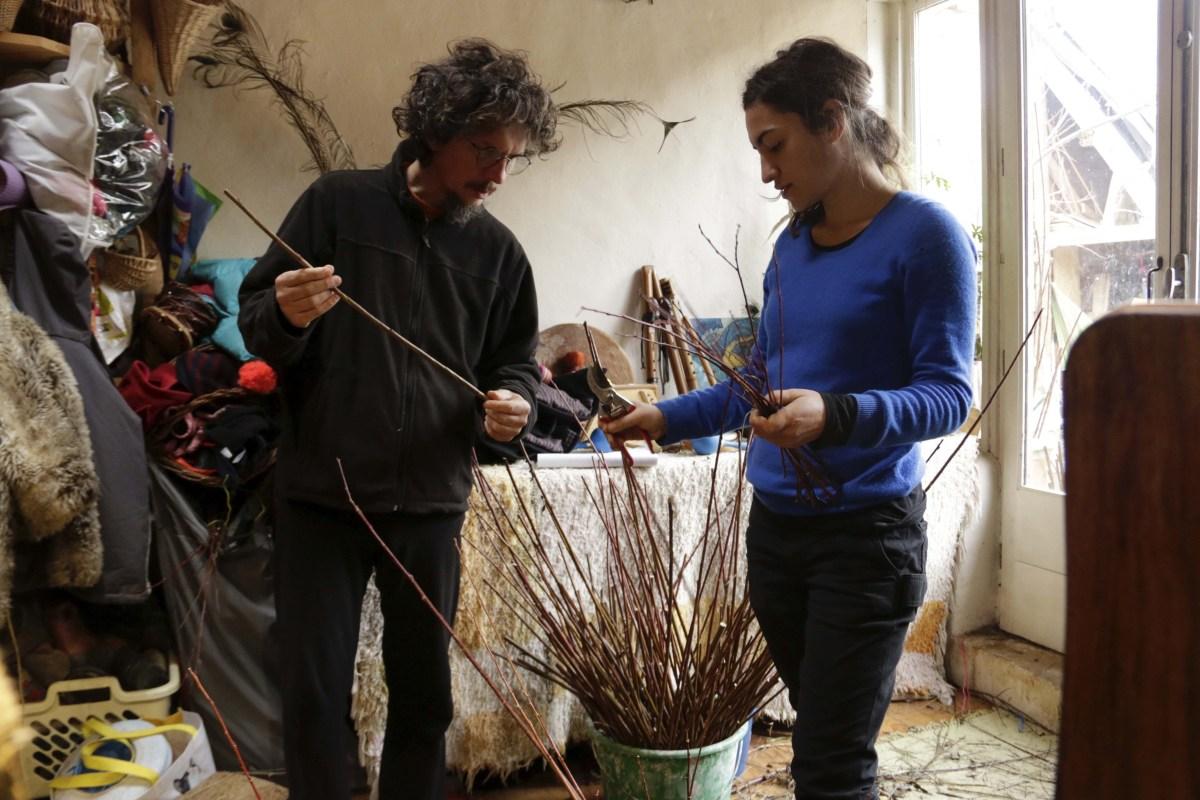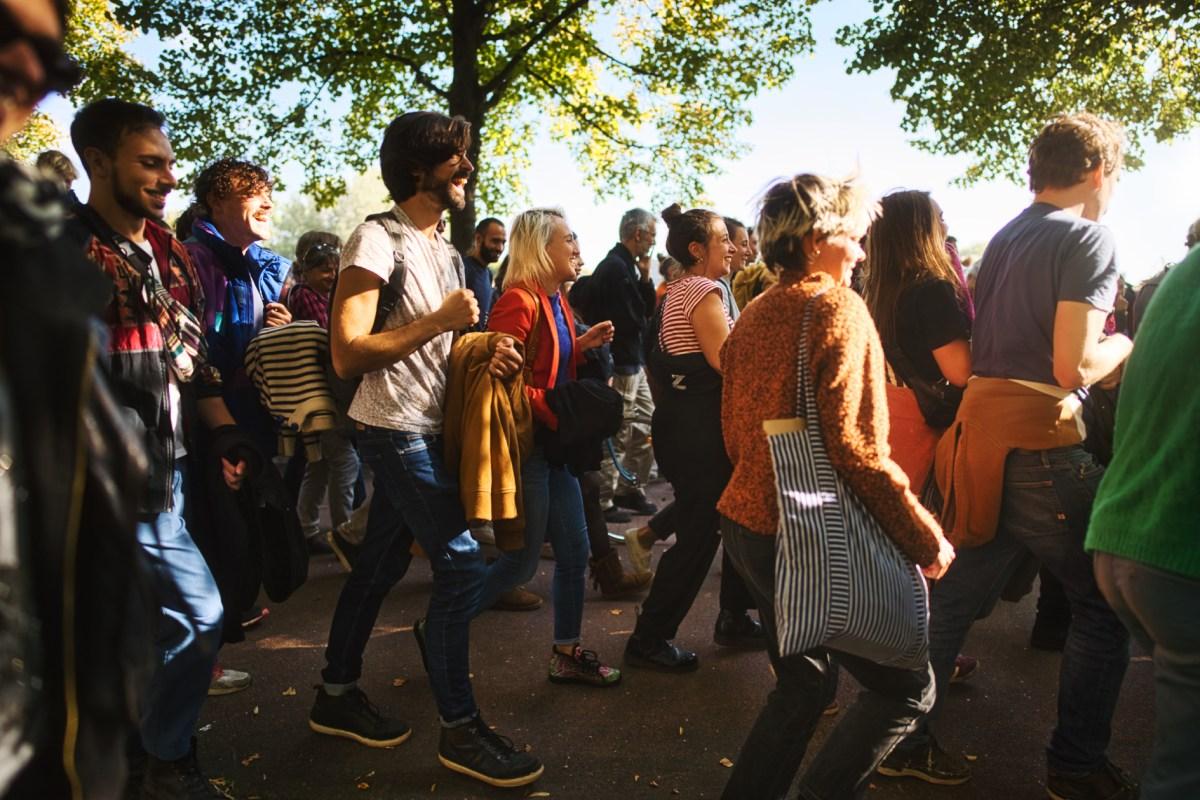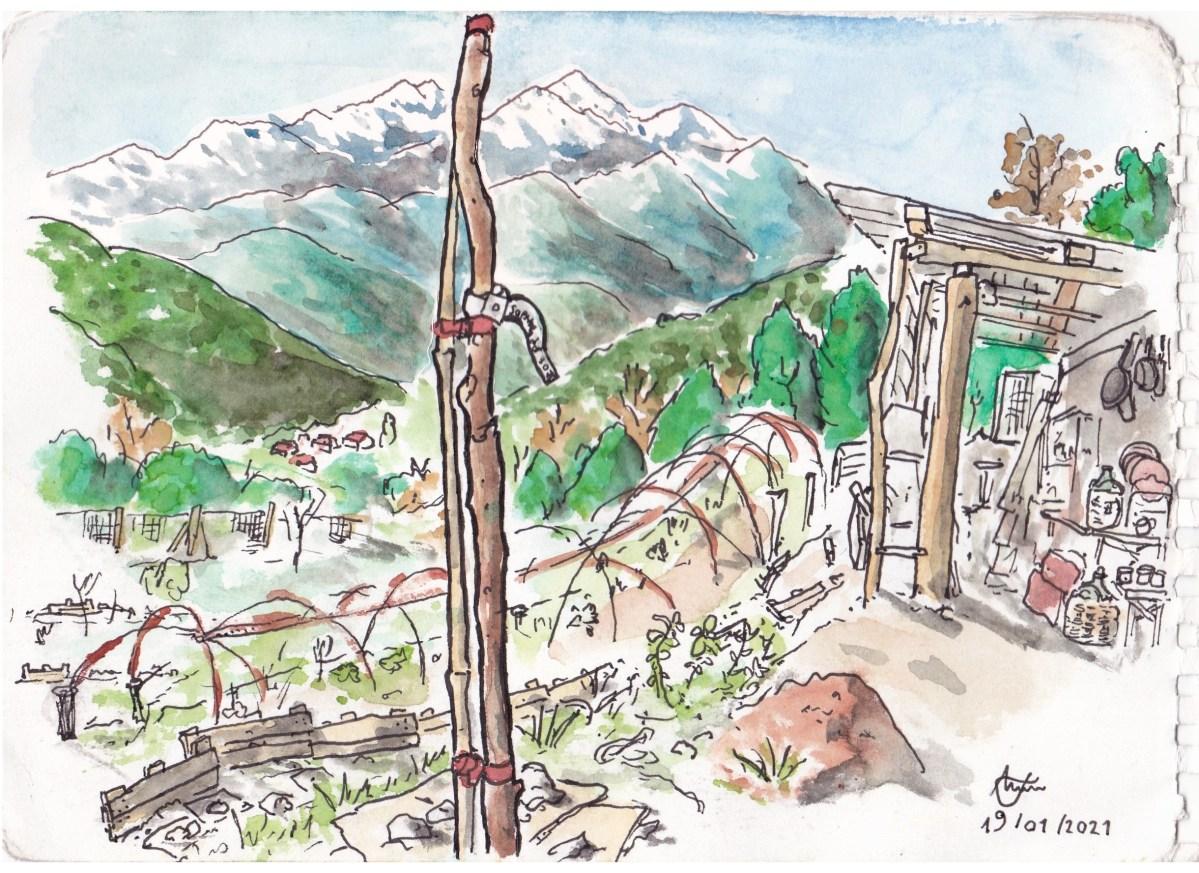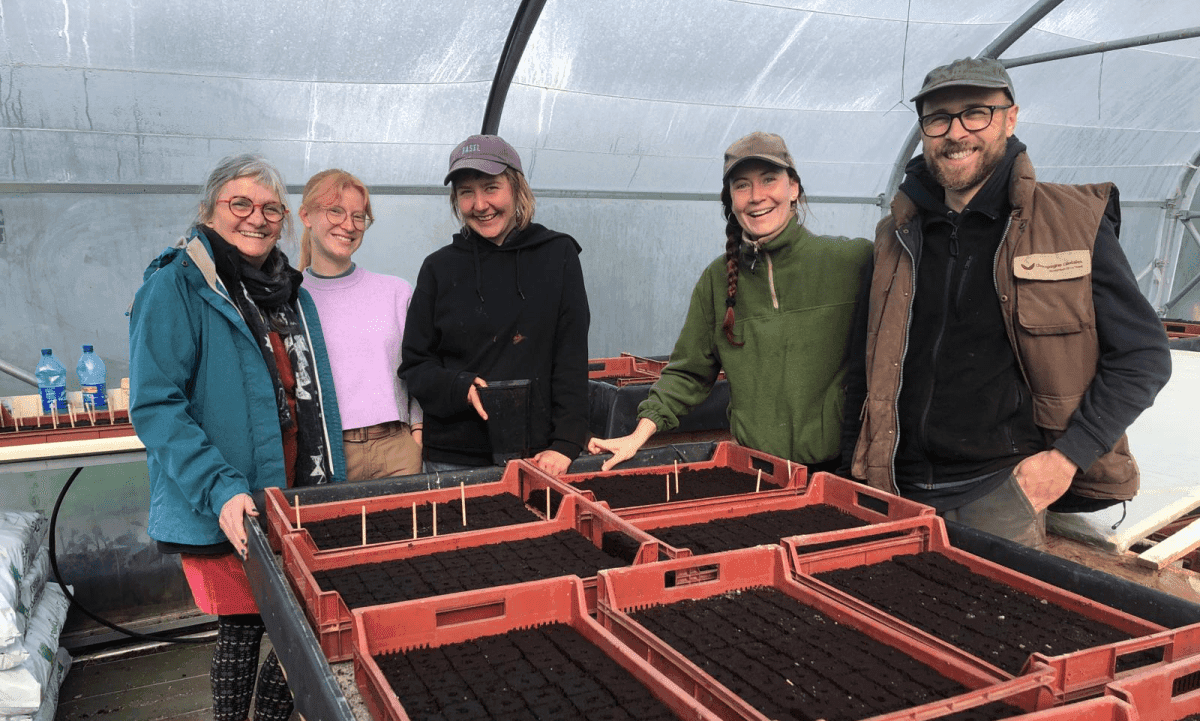
WWOOFing in Wintertime? No Worries! There Is Lots to Do
In winter, the pace gets slower as the temperature grows colder. But the work on organic farms continues all year around. From cutting wood to baking bread, WWOOFers and hosts talk about their experiences WWOOFing in wintertime, when there is never a lack for something to do or a warm meal to share.
Marie, organic farmer and baker in Moulières

My husband and I were looking for a farm to do organic gardening, when it all started—becoming bakers, that is. We ended up in the Périgord region, cultivating our own grains, raising our chickens, and other organic processes in order to start making bread à l’ancienne. Because we are a bakery, our principal activity is bread making! Three times a week. All year long. That’s why we do WWOOFing in winter as well.
"For the bread-making, there are three batches a week, which means making the breads and pastries in the morning, and going to market in the afternoons to sell fresh."
There’s all kinds of organic baguettes, croissants, brioches, chocolatines, cookies. In the winter, we also fabricate our own flour and shiitake mushrooms when we are not prepping for market. We typically get more french WWOOFers in the wintertime than summer—the high season tends to bring more foreigners interested in travel. However, there is an American coming next month in February—a chef who wants to learn bread making in France.
See Marie's profile here
Pauline, a French WWOOFer chez Marie: "Sustainability isn’t just in summer when the weather is nice"
I had finished my studies in political science and decided to do a year of WWOOFing starting last September. I want to focus on eco-sustainability thus WWOOFing made for a perfect personal project. Gardening activities slow in the winter so I’m here doing bread now, and after I will go on to work with a cheese making farm. I wanted to a do a whole year—winter, too—because sustainability isn’t just in summer when the weather is nice, but a 365 cyclical process.
Here at Marie’s, my favorite pastry that we make is the “forrestier.” It’s a sort of pie crust turnover. In the interior there’s shiitake mushrooms from the farm, Gruyère cheese...it’s super good! We always sell out of them at the market.
Laetitia, equestrian and animal farm in Saint Clément

"The activities we do in winter are different from those in summer. There’s still horse riding, cleaning of the stables, also for the goats, sheep, and pigs. The animals spend more time inside in the winter so there’s more cleaning, naturally. We have to cut the wood too for the heating—chopping, gathering it up and bringing it inside. If the weather isn’t nice, we do activities inside where we stay nice and warm, like working in the sewing shop for the summer horse shows. Here we make little artisan things we sell at shows: bracelets, key chains, paintings, etc.
Then end of winter we do lot’s of rewiring for the animals' enclosures so they have new pastures to graze for the spring. All year around we give horse-riding lessons on the weekends. The WWOOFers help the kids prepare the horse, accompany on rides, and even do a little riding themselves!"
See Laetitia's profile here
Chris, an American WWOOFer in Alsace and Bauges

WWOOFing in winter sort of happened spontaneously. I was staying with friends in other parts of Europe when I started to feel like I wanted to find a way to contribute and give back to the hosts of where I was staying; that’s when one of my friends told me about WWOOFing. The first place I stayed was a chateau near Lyon. Incredible! There was an amazing garden that stretched all around, located in the alps. The hosts had me transferring their summer garden plants into the greenhouse for the winter.
The second was a farm in Saint-Marie-Aux-Mines. We were preparing for next years harvest by using the compost collected from the city. We would take it back to the farm and make long rows for the fertilizer and perma-culture in Spring.
These winter WWOOF experiences opened up all kinds of alternative lifestyles for me in a foreign country
I stayed in communal cabins in the snowy mountains, saw a jam session in a recording studio barn, and really got to live the life like my french hosts, all the while feeling honored that I could help and give back.
See the profile for the hosts in Alsace here
Renaud, farmer and baker of Loire-Atlantique

In fall, we start preparation of the gardens and to start preserving for winter. We teach our WWOOFers to make preserves of tomatoes, ratatouilles, fruit purées; we take all fruits and veggies and transform them with zero-waste. Moving into winter, we prepare and cut the wood, plant trees, and do fences for the sheep. Even some weekends we have work sites that WWOOFers can participate in: eco-constructon and renovation, DIY projects, cleaning and organizing within our farming community. Also very important, as we are for now primarily grain farmers and traditional bakers, is the preparation of wheat seedlings for the grain crops. So, you see, there is always a lot to do!
My dream started with becoming a traditional organic baker but my project is to grow our farm into a shared work space with many other people who share the same dream. Now we just do bread-making, but in the future we would love to expand our community to have beekeepers, vegetable gardeners, others for cheese-making etc. Since we are a growing organic community, we have activities all year around.
See Renaud's profile here
Martinus, farmer located in the region of Bourgogne

In summer we prepare for winter. In winter we prepare for summer. WWOOFers participate to their abilities. Chores are adapted to suit them and the weather conditions outside. A few of those activities in winter include:
Cleaning forests
Cutting down trees to make room for pastures and selecting trees which we keep
Planting trees
Pruning fruit trees
Racking leaves
Chopping wood for the fireplace
Repairing fences and putting up new ones
General repair work on the farm and sorting and servicing tools
Cleaning our herb garden and preparing it for the next season
Making jam
"WWOOFING for us is not just about farming. It is a way of life. It is a constant exchange of ideas, culture, language, interpersonal relations."
One WWOOFER, a guy from Canada, arrived at our farm and as usual we were first getting to know one other. He told me that his father has a Christmas tree farm in Canada and he has some knowledge. I was very happy and thought how I could tap into that knowledge base. After some discussions we decided to prepare and plant a natural hedge on our farm consisting of 150 cypress trees. All done in winter. And trees are all still growing!
This time of year, as it gets dark very early we tend to socialize more. Sit around the fire, cook together, exchange ideas and just talk about life in general. Our children love the idea of WWOOFers as they love to make new friends and play. We also like it as it broadens their (and our) horizons and makes them better at languages.
See Martinus' profile here
Cécile, WWOOF in the Hautes-Alpes on "Harvesting the wicker, a winter specific job."

The wicker is picked in winter, when the sap has come completely down. It is an incredible activity because it is very colorful at a time when the landscape turns black and white. The reds and ocher of the different varieties of wicker warm the heart and the fingers! We accompanied our host in the morning and then we would warm up in his little workshop where the rest of the work takes place. We sorted by size and variety and made pretty bundles before drying them.
Warming up with human exchange and knowledge, rediscovering the sleeping extremities of the fingers.
It is a specific activity for winter and I am very happy to have experienced it. In the quiet moments, we learned to braid the wicker between the two of us, some of whom were very gifted and they showed us their techniques. The ideal is when it's cold outside: we warm up by human heat, by the exchange of knowledge, and we discover the dexterity of which our sleeping fingers are again capable.
See this WWOOF profile here
Lire davantage
Une fois par saison, l'actualité du WWOOFing par email


